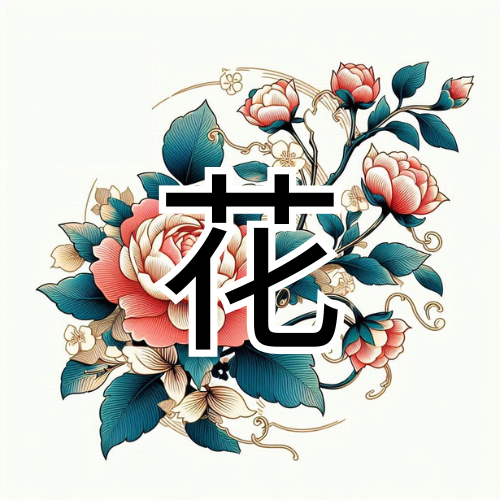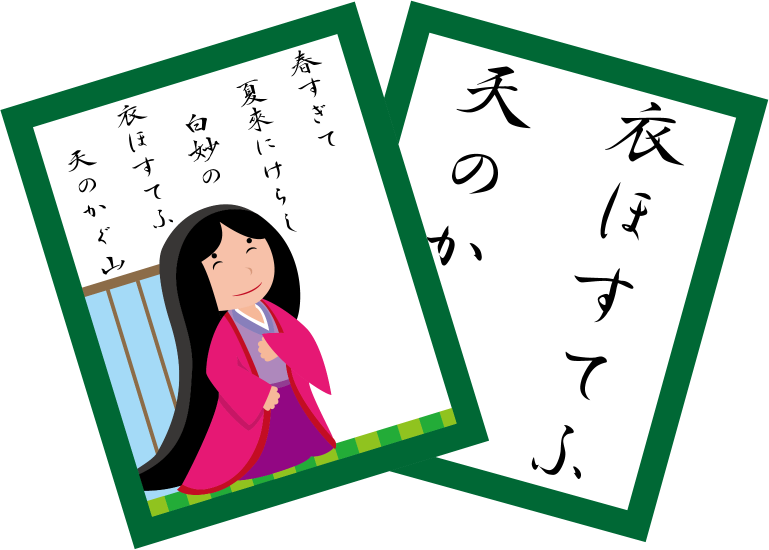
Basic Japanese sentences might seem a bit tricky at first, but they’re your best friend for diving into this rich language. Japanese follows a subject-object-verb structure. Unlike English, where you’d say ‘I eat sushi,’ in Japanese, it goes more like ‘I sushi eat’ – ‘Watashi wa sushi wo tabemasu.’ Getting the hang of this will make everything else much easier.
Getting a grip on some simple words and phrases is your ticket to Japan, whether you’re traveling or striking up a chat. These basics not only make life smoother but also open doors to understanding the culture. You’ll find people appreciate it when you try to speak their language – it’s a great way to connect.
Ever hit one of those moments where you’re stuck in the middle of a buzz and can’t figure out what to say? That’s where knowing a few key phrases comes into play. They’re not just practical – they’re also a way to immerse yourself in Japanese culture from ordering food to asking directions, these expressions are your go-to tools.
Before you know it, these handy phrases and words become your trusty sidekick. It’s not just about speaking – it’s about soaking up the cultural vibes around you. Stick with me, and let’s get you equipped with some easy-to-use Japanese that’ll make your day-to-day interactions way more engaging.
100 Simple Japanese Phrases
| Japanese Phrase | Pronunciation | English Meaning |
|---|---|---|
| Hai (はい) | Hai | Yes |
| Iie (いいえ) | Iie | No |
| Namae wa nan desu ka (名前はなんですか) | Namae wa nan desu ka | What is your name? |
| Watashi wa ~ desu (私は〜です) | Watashi wa ~ desu | I am ~ |
| ~kara kimashita (~から来ました) | ~kara kimashita | I came from~/I am from~ |
| Kore wa nan desu ka (これは何ですか) | Kore wa nan desu ka | What is this? |
| Ikura desu ka (いくらですか) | Ikura desu ka | How much? |
| Kore kudasai (これください) | Kore kudasai | Can I get this one?/I will take this one |
| Onegaishimasu (おねがいします) | Onegaishimasu | Please |
| Chumon onegaishimasu (注文お願いします) | Chumon onegaishimasu | Can I place an order? |
| Mizu o onegaishimasu (水をお願いします) | Mizu o onegaishimasu | Water please |
| Okaikee onegaishimasu (お会計お願いします) | Okaikee onegaishimasu | Can I get the check/bill please? |
| Koko wa doko desu ka (ここはどこですか) | Koko wa doko desu ka | Where am I? |
| Toire wa doko desu ka (トイレはどこですか) | Toire wa doko desu ka | Where is the bathroom? |
| Eki wa doko desu ka (駅はどこですか) | Eki wa doko desu ka | Where is the train station? |
| Ima nan ji desu ka (今何時ですか) | Ima nan ji desu ka | What time is it now? |
| Wakarimasen (わかりません) | Wakarimasen | I don’t understand |
| Nihongo wo hanasemasen (日本語を話せません) | Nihongo wo hanasemasen | I can’t speak Japanese |
| Ohayoo gozaimasu (おはようございます) | Ohayoo gozaimasu | Good morning |
| Kon’nichiwa (こんにちは) | Kon’nichiwa | Good afternoon |
| Konbanwa (こんばんは) | Konbanwa | Good evening |
| Arigatoo gozaimasu (ありがとうございます) | Arigatoo gozaimasu | Thank you |
| Sumimasen (すみません) | Sumimasen | Excuse me/I am sorry |
| Watashi/Boku/Ore (私、僕、俺) | Watashi/Boku/Ore | I |
| Tomodachi (友達) | Tomodachi | Friend |
| Do-ryoo (同僚) | Do-ryoo | Co-worker |
| Buchoo/Syachoo (部長、社長) | Buchoo/Syachoo | Boss/President (of a company) |
| Kazoku (家族) | Kazoku | Family |
| Otoo-san (お父さん) | Otoo-san | Father |
| Okaa-san (お母さん) | Okaa-san | Mother |
| Oni-san (お兄さん) | Oni-san | Older brother |
| Onee-san (お姉さん) | Onee-san | Older sister |
| Otooto (弟) | Otooto | Younger brother |
| Imooto (妹) | Imooto | Younger sister |
| Otona (大人) | Otona | Adults |
| Kodomo (子供) | Kodomo | Children |
| Kareshi (彼氏) | Kareshi | Boyfriend |
| Kanojo (彼女) | Kanojo | Girlfriend |
| Otoko-no-hito (男の人) | Otoko-no-hito | Man |
| Onna-no-hito (女の人) | Onna-no-hito | Woman |
| Asa-gohan (朝ご飯) | Asa-gohan | Breakfast |
| Hiru-gohan (昼ご飯) | Hiru-gohan | Lunch |
| Yoru-gohan (夜ご飯) | Yoru-gohan | Dinner |
| Gohan (ご飯) | Gohan | Rice/Meal |
| Pan (パン) | Pan | Bread |
| Niku (肉) | Niku | Meat |
| Sakana (魚) | Sakana | Fish |
| Yasai (野菜) | Yasai | Vegetables |
| Kudamono (果物) | Kudamono | Fruits |
| Suupu (スープ) | Suupu | Soup |
| Sarada (サラダ) | Sarada | Salad |
| Tamago (卵) | Tamago | Egg |
| Gyuu-Nyuu (牛乳) | Gyuu-Nyuu | Milk |
| Chee-zu (チーズ) | Chee-zu | Cheese |
| Dezaato (デザート) | Dezaato | Dessert |
| Mizu (水) | Mizu | Water |
| Ocha (お茶) | Ocha | Green tea |
| Koohii (コーヒー) | Koohii | Coffee |
| Osake (お酒) | Osake | Sake, Alcohol in general |
| Wain (ワイン) | Wain | Wine |
| Biiru (ビール) | Biiru | Beer |
| Nichiyoobi (日曜日) | Nichiyoobi | Sunday |
| Getsuyoobi (月曜日) | Getsuyoobi | Monday |
| Kayoobi (火曜日) | Kayoobi | Tuesday |
| Suiyoobi (水曜日) | Suiyoobi | Wednesday |
| Mokuyoobi (木曜日) | Mokuyoobi | Thursday |
| Kinyoobi (金曜日) | Kinyoobi | Friday |
| Doyoobi (土曜日) | Doyoobi | Saturday |
| Taberu (食べる) | Taberu | To eat |
| Iku (行く) | Iku | To go |
| Nomu (飲む) | Nomu | To drink |
| Kiku (聞く) | Kiku | To listen |
| Yomu (読む) | Yomu | To read |
| Miru (見る) | Miru | To see/look/watch |
| Neru (寝る) | Neru | To sleep |
| Okiru (起きる) | Okiru | To wake up |
| Hanasu (話す) | Hanasu | To talk/speak |
| Kaeru (帰る) | Kaeru | To return/go back |
| Suwaru (座る) | Suwaru | To sit down |
| Tatsu (立つ) | Tatsu | To stand up |
| Oyogu (泳ぐ) | Oyogu | To swim |
| Asobu (遊ぶ) | Asobu | To play |
| Noru (乗る) | Noru | To ride |
| Kau (買う) | Kau | To buy |
| Au (会う) | Au | To meet |
| Kaku (書く) | Kaku | To write |
| Matsu (待つ) | Matsu | To wait |
| Toru (撮る) | Toru | To take a picture |
| Aka (赤) | Aka | Red |
| Ao (青) | Ao | Blue |
| Kiiro (黄色) | Kiiro | Yellow |
| Midori (緑) | Midori | Green |
| Shiro (白) | Shiro | White |
| Kuro (黒) | Kuro | Black |
| Murasaki (紫) | Murasaki | Purple |
| Orenji (オレンジ) | Orenji | Orange |
| Pinku (ピンク) | Pinku | Pink |
| Chairo (茶色) | Chairo | Brown |
Unlocking Essential Japanese Phrases

Grasping the essentials of any language starts with the key phrases that can get you through most day-to-day situations. Ready to unlock Japanese? Let’s dive into some of the 100 most common expressions you need to know.
Picture yourself in Japan and you find yourself wanting to thank someone. ‘Arigatou’ (ありがとう) is simple and loaded with appreciation. If you wanna be extra polite, toss in a ‘gozaimasu’ (ございます), making it ‘Arigatou gozaimasu.’ And for those moments when you’re bumping through a crowd or need to interrupt, ‘Sumimasen’ (すみません) is your lifesaver. It means ‘excuse me,’ and it doubles up as ‘I’m sorry’ too. Handy, right?
Ever find yourself stuck or in doubt? ‘Wakarimasen’ (わかりません) is the way to confess ‘I don’t understand.’ While ‘Hai’ (はい) means ‘yes,’ and ‘Iie’ (いいえ) helps you say ‘no,’ clear as that. Just these little snippets can make conversation flow so much smoother.
Everyday interactions become easier with phrases like ‘Kudasai’ (ください), softly requesting something with ‘please.’ When in doubt, ‘Nani desu ka’ (何ですか) casually inquires ‘What is it?’ You’ve instantly got tools to keep those chats rolling.
Among friends or having a friendly chat, ‘Genki desu ka?’ (元気ですか) goes along the lines of asking ‘How are you?’ Connecting on a personal level with your new language skills feels great. These essential phrases are more than just words – they’re about engaging with a culture and creating connections.
Greetings: Start the Conversation Right

Kicking off any interaction with a greeting isn’t just polite – it’s a cultural must in Japan. The art of saying hello goes beyond words. Mastering the right greetings helps you blend into various social settings.
First up is ‘Konnichiwa’ (こんにちは), the go-to for ‘hello.’ Simple and universal, you can drop it in almost any encounter throughout the day. For early risers, there’s ‘Ohayou gozaimasu’ (おはようございます) – a formal ‘good morning’ that sets a welcoming tone for the day.
And when the sun dips low, ‘Konbanwa’ (こんばんは) gives you your evening greeting fix. Being polite in Japan often means aligning greetings with the right time of day.
- Key phrases to know:
- ‘Konnichiwa’ (こんにちは): Hello
- ‘Ohayou gozaimasu’ (おはようございます): Good morning
- ‘Konbanwa’ (こんばんは): Good evening
- ‘Ja mata’ (じゃまた): See you later
- ‘Sayounara’ (さようなら): Goodbye
For parting ways, especially briefly, the phrase ‘Ja mata’ (じゃまた) casually says ‘see you later,’ while ‘Sayounara’ (さようなら) handles the more formal ‘goodbye.’ It’s all about knowing what fits the moment best.
Greeting someone the right way can significantly impact how you’re received. When you use these words effectively, you’re not just talking – you’re showing understanding and respect for the nuances of Japanese culture. It’s like finding the perfect background music for a scene; everything just clicks in place.
When in Japan, don’t shy away from giving a friendly bow as you greet. It’s not just the sound of the words that matter but the feel of the interaction as a whole. Adding that touch of respect could make all the difference in your exchanges.
Expanding Your Vocabulary: Pronouns, Food, and More

Once you’ve got the greetings down, it’s time to stretch out a bit and get into pronouns and other basics of conversation. Learning how to refer to yourself and others is key. ‘Watashi’ (私) is a straightforward way to say ‘I,’ and ‘Anata’ (あなた) for ‘you.’ These are building blocks you’ll use in tons of phrases.
Chatting about food or ordering meals? Some vocabulary magic comes into play here. ‘Tabemasu’ (食べます) means ‘eat’ and ‘Oishii’ (美味しい) expresses ‘delicious.’ Put them together, and you’ve got yourself a compliment any chef would love to hear.
- Key phrases to remember:
- ‘Watashi’ (私): I
- ‘Anata’ (あなた): You
- ‘Tabemasu’ (食べます): Eat
- ‘Oishii’ (美味しい): Delicious
- ‘Ikura desu ka?’ (いくらですか): How much is it?
- ‘Aka’ (赤): Red
- ‘Ao’ (青): Blue
Ever need to ask how much something costs? ‘Ikura desu ka?’ (いくらですか) smoothly slides in to mean ‘How much is it?’ It’s an essential phrase in markets or stores, making sure you’re always in the know.
Numbers are part of everyday life, so nailing the basics like ‘ichi’ (一) for one, ‘ni’ (二) for two, and so on up to ‘juu’ (十) can help you tackle anything from addresses to phone numbers. And when talking about colors, ‘aka’ (赤) for red or ‘ao’ (青) for blue lets you describe the world you’re navigating around you.
Advanced Tips: Practice and Culture
Stepping into the world of Japanese isn’t just about the words; it’s about embracing a whole vibe. It’s like adding the last puzzle pieces that connect language learning with cultural insights.
The best way to make these phrases stick is to practice, practice, and yep, practice some more. Repeating them until they become part of your natural chat is the name of the game. Try them out in conversations with friends or language learning partners. The more you use them, the more they’ll feel like second nature.
Dive into Japanese culture through media. Watch a few anime episodes or J-dramas without the pressure of understanding every word. Subtitles can be your friend. You’ll pick up pronunciation and context in a fun way by osmosis. Music’s also a nifty tool – learning song lyrics lets you rhythmically hammer those phrases in.
Famous phrases carry a bit of cultural weight too. ‘Ganbatte’ (頑張って), a phrase equivalent to ‘Do your best’ or ‘Good luck,’ is a phrase pulsing with cultural spirit, showing just how encouragement merges with language.
Language isn’t just words and grammar; it’s the way you connect with people while appreciating their background, traditions, and way of life. Those friendly nods and occasional bows? They’re as critical as the syllables themselves.
What you’ve picked up in these sections is more than just a lesson – it’s a step towards a whole new dimension of seeing the world. So go on, let those phrases roll off your tongue, and enjoy your journey of discovery.
IlIllustrations on this website are sourced from:
Shigureni: A collection of charming, free-to-use illustrations featuring girls in everyday scenarios. shigureni.com
Thank you to these creators for their amazing resources!




